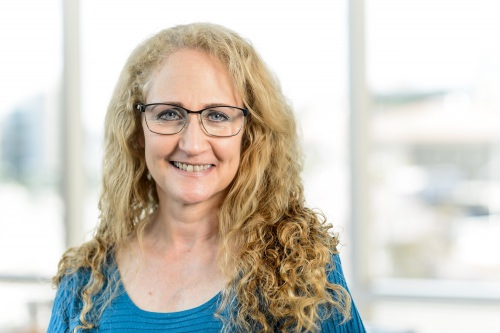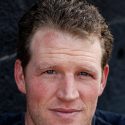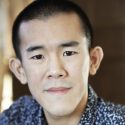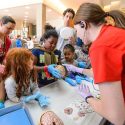Communication and policy the focus of two science festival events
From November 2nd to 5th, the Wisconsin Science Festival will not only bring dozens of science outreach events to the state, it will also help teach scientists how — and why — to take their research outside of the lab.
Two mini-symposia held during the festival will teach early career scientists and nonscientists alike the value of sharing research broadly and how science interacts with and influences governmental policies. Experts in science policy and communication will discuss their fields before leading workshops on particular skills, like storytelling. Together, the events are designed to provide the motivation and tools for effective outreach.
The first event, Making a Difference: Science Policy for Scientists, will be held Thursday, Nov. 2nd, from 2 to 5 p.m. in the H.F. DeLuca Forum at the Discovery Building, 330 N. Orchard St. Communicating Science in the 21st Century will take place the following day, Friday, Nov. 3, from 2 to 5:30 p.m. in the same location.

Jo Handelsman, director of the Wisconsin Institute for Discovery, in her office in the Discovery Building at UW–Madison. Photo: Bryce Richter
Jo Handelsman, the director of the Wisconsin Institute for Discovery and a former associate director of the White House Office of Science and Technology Policy, will introduce each symposium. Her own work in science policy — which she considers a specialized form of communication about science — led her to want to get scientists who are just starting their career involved in sharing their work more broadly.
“The science policy symposium is in response to a strong resurgence among the public and the science community to have a role and a voice in science policy,” says Handelsman. “We’ve invited several advocates of science who work mostly with policy makers — in the state or federal government — in affecting and shaping science policy.”
“I consider the science communication event the sister panel of the science policy panel, because clearly if you’re going to try to affect policy you have to be able to communicate about it to government officials or citizens, and you need to make it compelling” Handelsman says.
The policy forum will feature Angela Dickens, a policy analyst with the Wisconsin Department of Natural Resources; Cora Marrett, the former deputy director of the National Science Foundation; Crystal Potts, the director of state relations for the University of Wisconsin–Madison; and several others. Workshops will teach how to create an effective policy memo and how to persuade policy makers.
Speakers for the communication panel include Knatokie Ford, the founder of the science communication firm Fly Sci Enterprise; senior NOVA producer Chris Schmidt; UW–Madison Life Sciences Communication professor Dominique Brossard; and others. Members of the panel will lead workshops on scientific storytelling and blogging. A second panel will feature researchers at the center of a UW–Madison documentary on the origins of life, humanity and the universe.
“We do a lot of great things in science, but our ability to continue to do that with the support of the public depends on our ability to communicate what we do to the public in a number of different ways,” explains Eric Wilcots, a professor of astronomy at UW–Madison, co-chair of the Wisconsin Science Festival statewide committee, and a subject of and panel member on the documentary.
“We want to use the science festival as a venue to address the interest we’re getting from younger scientists on these topics,” says Wilcots. “I’m hoping that grad students and postdoctoral researchers will see that there are many ways they can get engaged both in science communication and science policy.”



